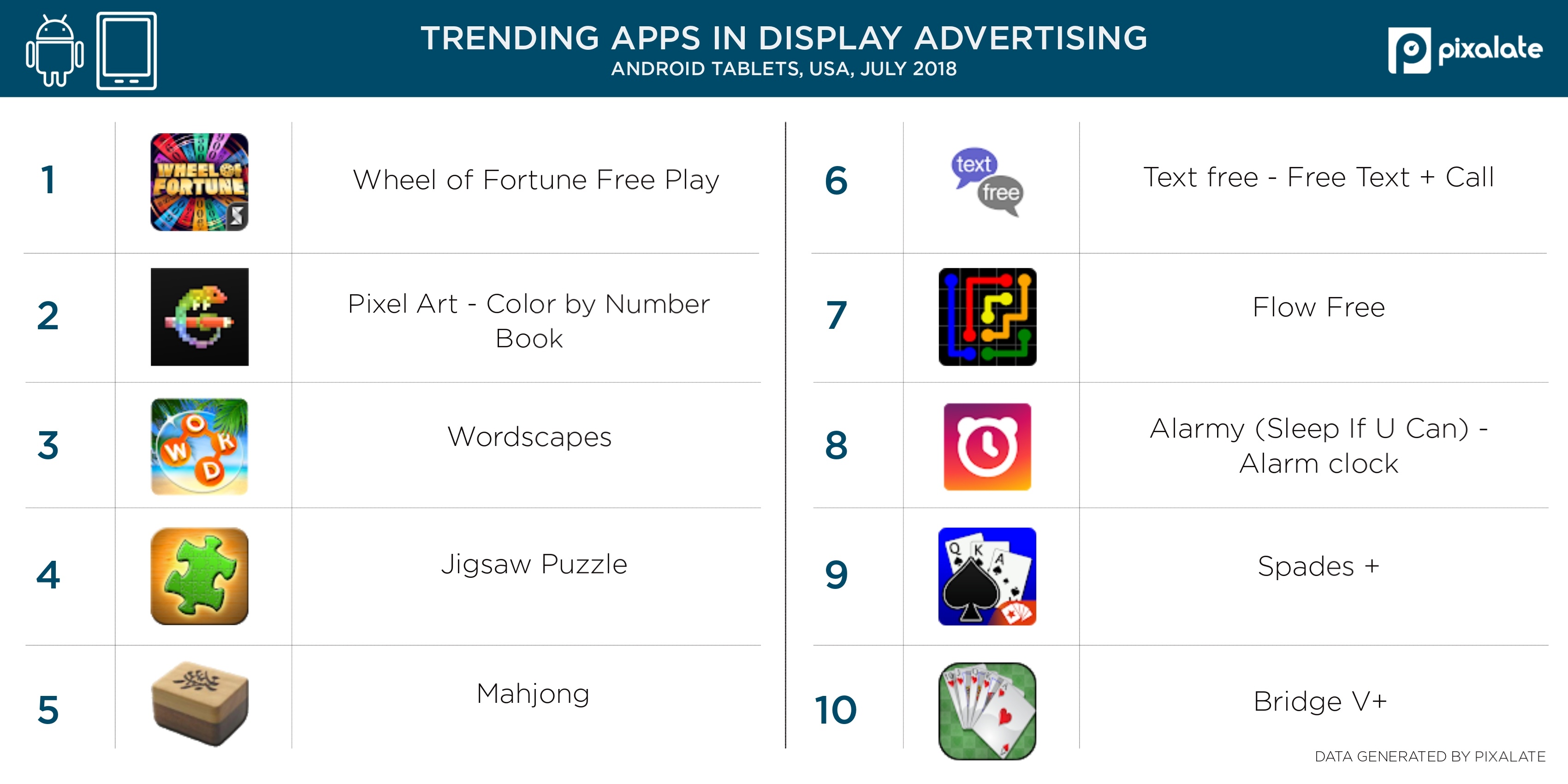
To help marketers better understand the latest mobile advertising trends in the in-app space, Pixalate examined data from official Google Play Store apps to identify today’s trending apps in the Android app ecosystem. After highlighting the top trending mobile apps in advertising on Android phones, iPads, iPhones, today we are revealing the top apps on Android tablets.
This post highlights the top trending apps in the United States, based on display and video programmatic advertising volume, on Android tablets from July 2018.
Key takeaways:
Download a list of the top 30 trending Android phone apps in advertising, including Bundle IDs, below:
-(1).jpg?width=600&name=Display-Android-tablet-top-apps-USA-(July-2018-data)-(1).jpg)
-(1).jpg?width=600&name=Video-Android-tablet-top-apps-USA-(July-2018-data)-(1).jpg)
Methodology and Disclaimer
Pixalate examined mobile in-app display advertisements sold via programmatic channels throughout July 2018 for this study. The data is based on activity within apps that engage in programmatic advertising in the open marketplace. Invalid Traffic (IVT) — including General Invalid Traffic (GIVT) and Sophisticated Invalid Traffic (SIVT) — were removed prior to ranking the apps. Any reference to "top" or "trending" apps refers solely to an app's Share of Voice of programmatic advertising impressions.
Sign up for our blog to stay updated with new stats, trends, and analysis on digital ad fraud.
*By entering your email address and clicking Subscribe, you are agreeing to our Terms of Use and Privacy Policy.
These Stories on Mobile
*By entering your email address and clicking Subscribe, you are agreeing to our Terms of Use and Privacy Policy.

Disclaimer: The content of this page reflects Pixalate’s opinions with respect to the factors that Pixalate believes can be useful to the digital media industry. Any proprietary data shared is grounded in Pixalate’s proprietary technology and analytics, which Pixalate is continuously evaluating and updating. Any references to outside sources should not be construed as endorsements. Pixalate’s opinions are just that - opinion, not facts or guarantees.
Per the MRC, “'Fraud' is not intended to represent fraud as defined in various laws, statutes and ordinances or as conventionally used in U.S. Court or other legal proceedings, but rather a custom definition strictly for advertising measurement purposes. Also per the MRC, “‘Invalid Traffic’ is defined generally as traffic that does not meet certain ad serving quality or completeness criteria, or otherwise does not represent legitimate ad traffic that should be included in measurement counts. Among the reasons why ad traffic may be deemed invalid is it is a result of non-human traffic (spiders, bots, etc.), or activity designed to produce fraudulent traffic.”

